Dry eyes from hiking? Check out these 6 soothing tips
Excessive sun exposure, cold, wind, dust and pollen all just a few possible reasons why your eyes feel dry after hiking – here’s our advice on how to avoid it
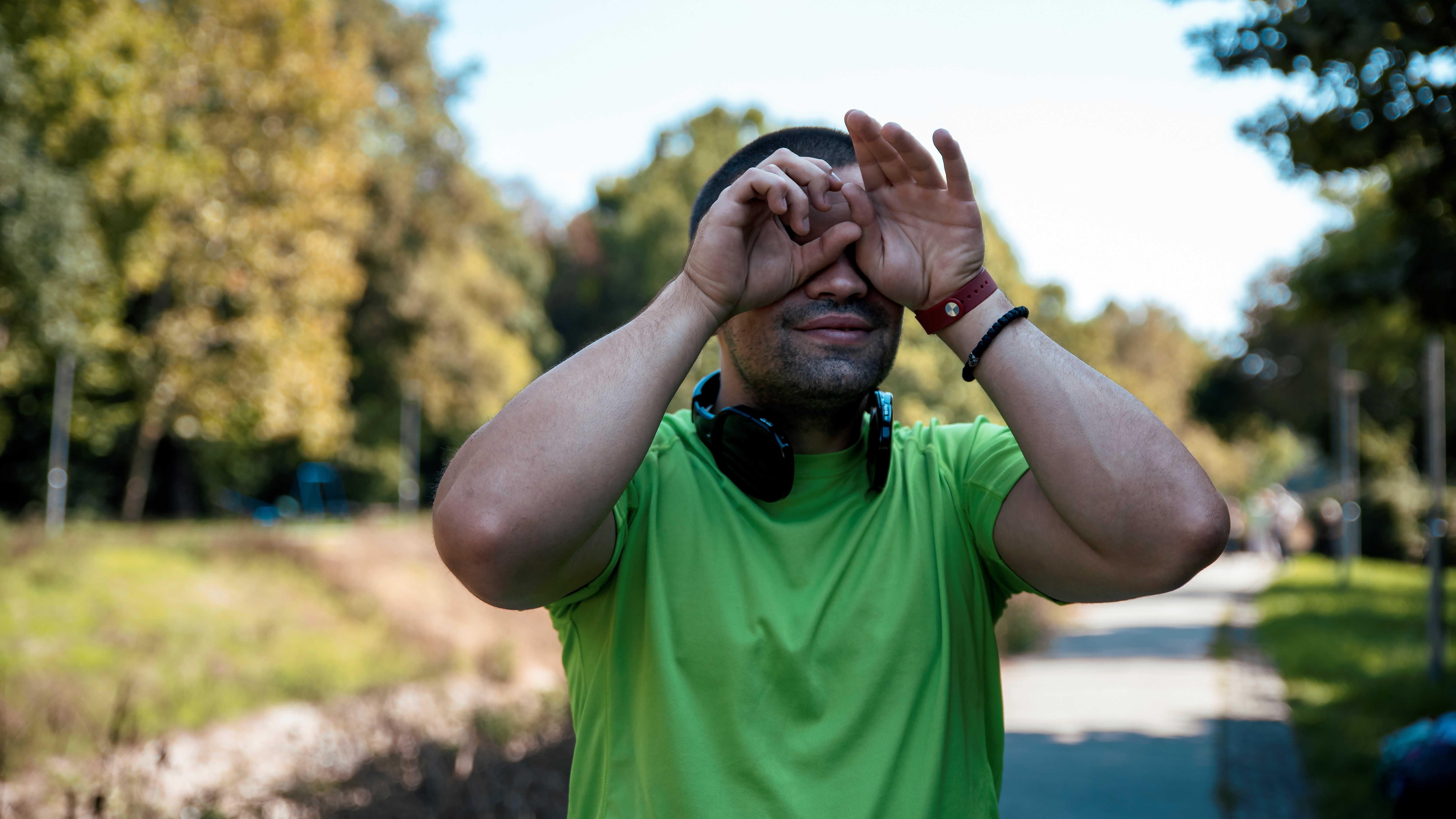
All the latest inspiration, tips and guides to help you plan your next Advnture!
You are now subscribed
Your newsletter sign-up was successful
As the hot summer season wears on, those of us who spend lots of time on the trails expect to feel radiant and robust, but instead can find ourselves with an uncomfortable situation developing – dry, red, stinging eyes. When I was living in Colorado, I’d typically start to feel some burning in my eyes in August and by September I looked like a Ring-Tailed Lemur. And let me tell you, it was extremely unpleasant.
There are lots of reasons you might be suffering from dry, red eyes, and it’s important to pay a visit to your health provider or an optometrist to find out what's behind it. But if you’re spending a lot of time outdoors, excessive sun exposure, cold, wind, dust and pollen are all likely culprits, whilst over exertion and fatigue might also be making matters worse. I know I wasn’t willing to give up hiking just because I looked and felt like I had conjunctivitis and had to lie in a cool dark room after every hike, but I realized I needed to do something. With a few changes and practices, I’m now able to hike all summer with much happier eyes.
If you’ve been struggling with dry eyes from hiking, check out these six tips to protect your peepers so you can keep enjoying the trails in your hiking boots.
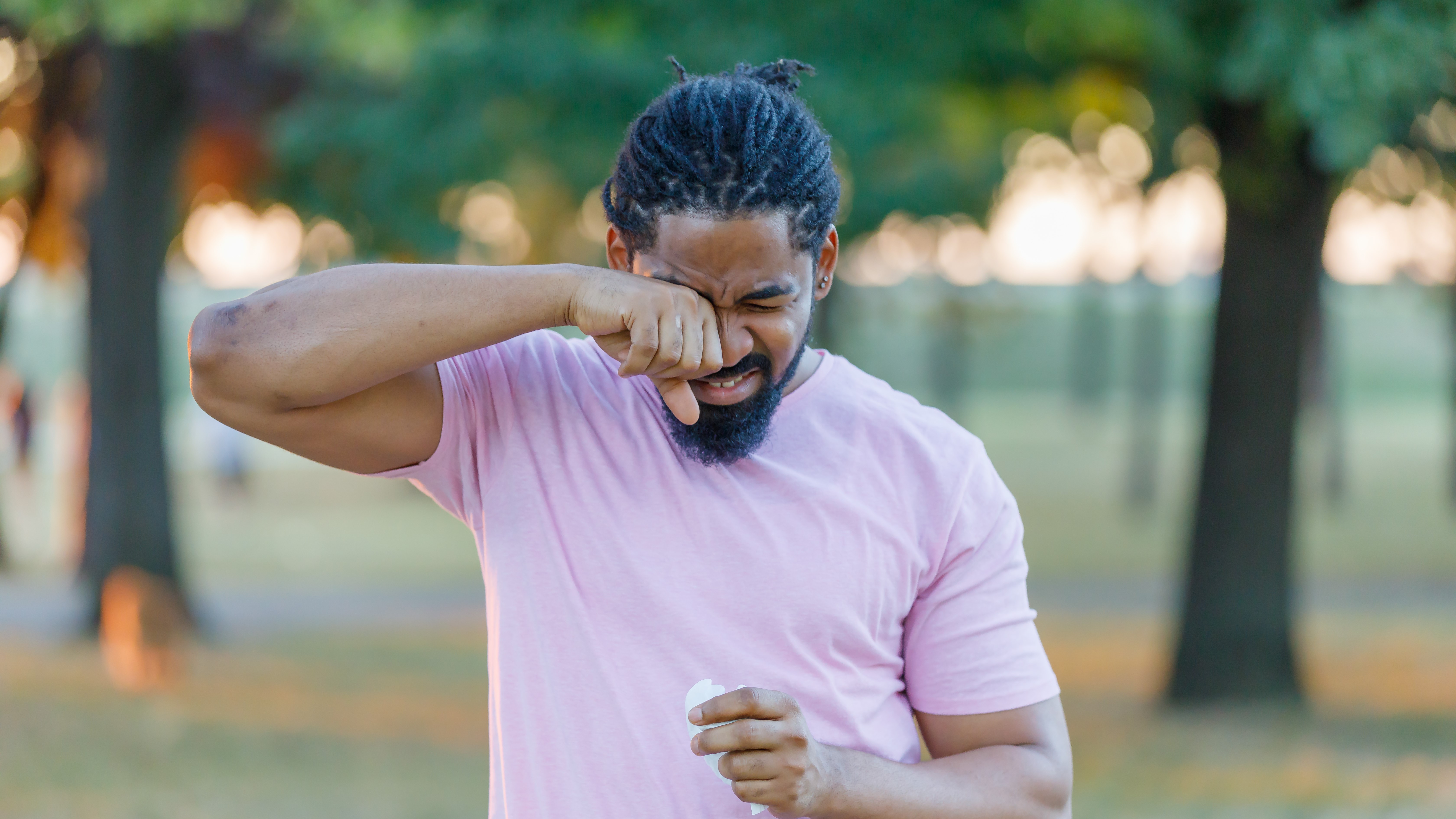
1. Choose the right sunglasses
Hopefully, you’re aware that protecting your eyes from the sun by wearing sunglasses is super important when you’re spending long days out on the trail, but you also need to take care to choose the right sunglasses. Because sunglasses for hiking tend to get dropped on the trail and beat up in your backpack, it’s really easy to make the mistake of using your cheapest gas station pair. Don’t.
To really protect your eyes, get a wraparound pair which stop the sun’s rays from creeping in round the edges, and if you’re spending a lot of time in high glare situations, such as near snow or water, make sure your sunglasses are polarized too. Even if it’s not bright out, wearing sunglasses can protect your eyes from the wind, too.
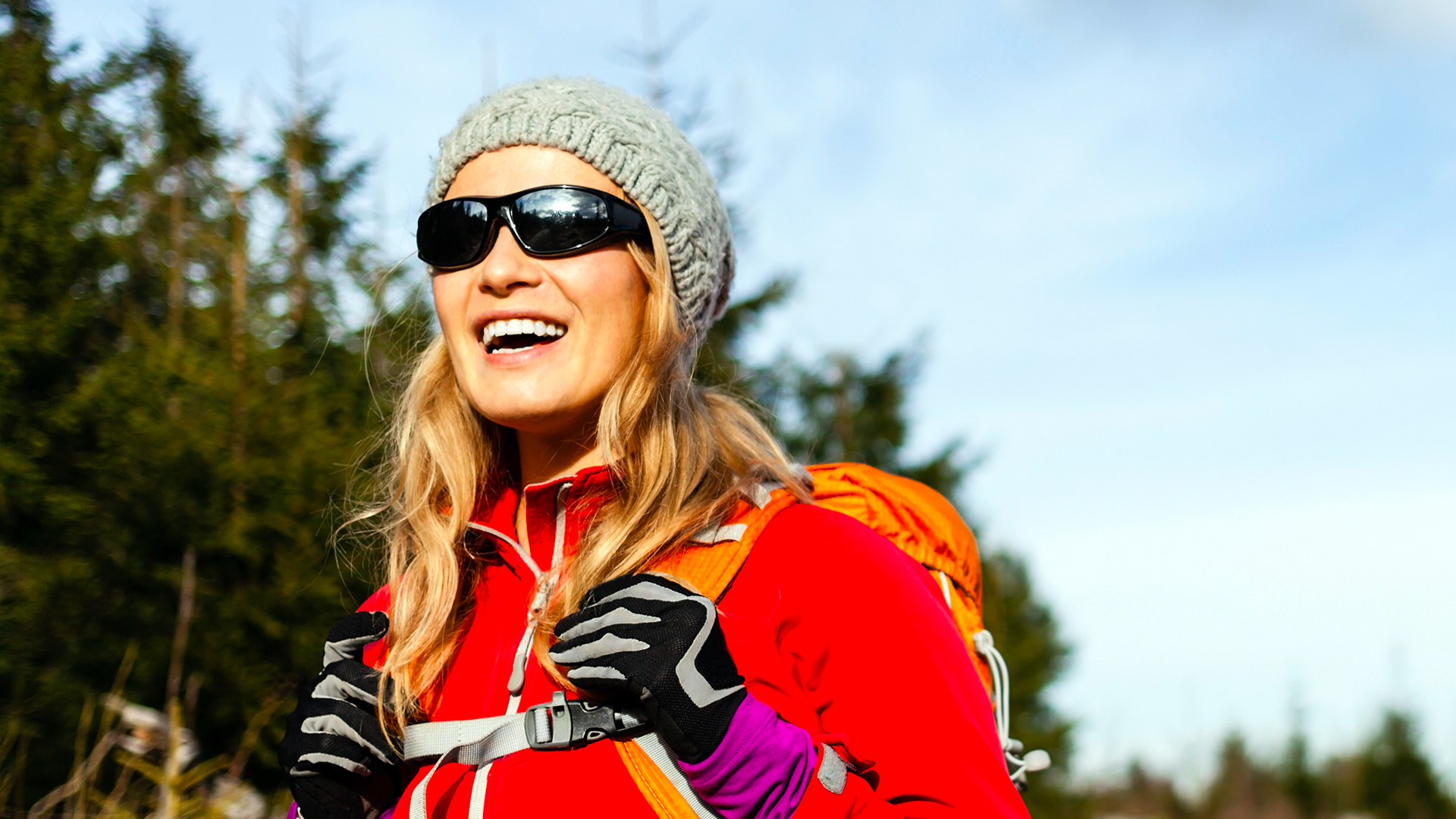
2. Wear a brimmed hat
Even with the best sunglasses, when the sun is highest in the sky it can peek in over the top of your sunglasses, so make sure you also wear a brimmed hiking hat or visor for added sun protection.
3. Avoid chemical sunscreen
One reason your eyes might start stinging on the trail is because they’ve got sunscreen in them thanks to your sweaty brow. Since you’re wearing a hat and sunglasses, you may be tempted to skip the sunscreen on your face, but it’s important to keep your skin protected from the sun’s harmful rays.
All the latest inspiration, tips and guides to help you plan your next Advnture!
Use sunscreen too, but not just any sunscreen or as soon as you start to sweat, your eyes will be stinging and you’ll want to rub them, which only makes matters worse. Avoid chemical sunscreens and choose a sunscreen that is marked as as mineral sunscreen and sweat proof or water-resistantf as these will stick to your skin better rather than traveling into your eyes.
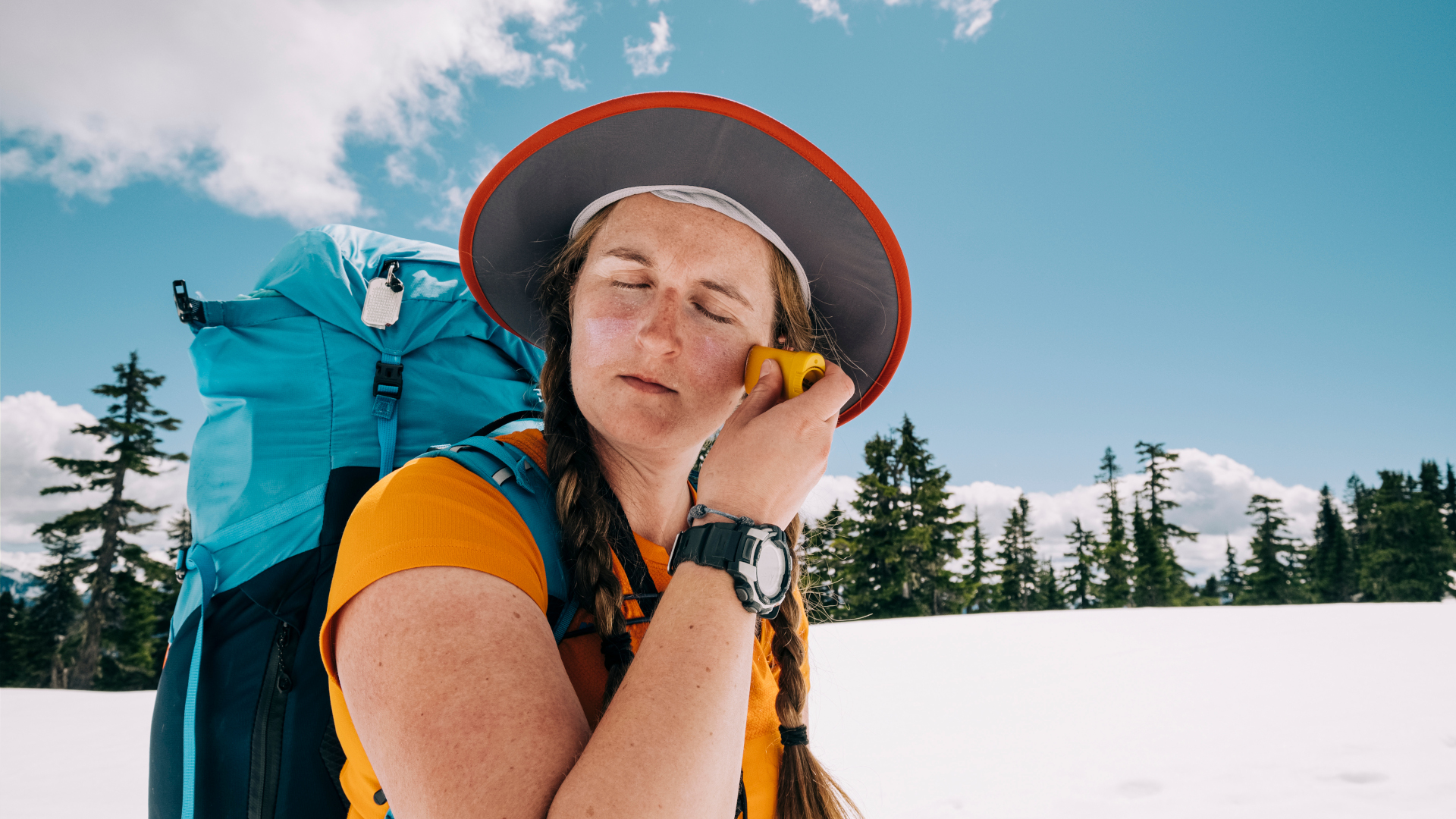
4. Carry eye drops
This one might sound obvious, but often when you’re packing for a hike, there’s so much to remember that it’s easy to forget the non-essentials. Add a small bottle of eye drops to your hiking first aid kit so you always have them on you when you’re on the trail, and use them whenever your eyes start to burn.
5. Wash your eyes
As soon as you get home from a hike, wash your face first to scrub off any sunscreen, wash your hands, then gently wash your eyes with cool, clean water – you can do this over the sink or when you’re in the shower by holding your eyes open to allow the water to enter. This can help remove any dust and pollen that might be irritating your eyes.
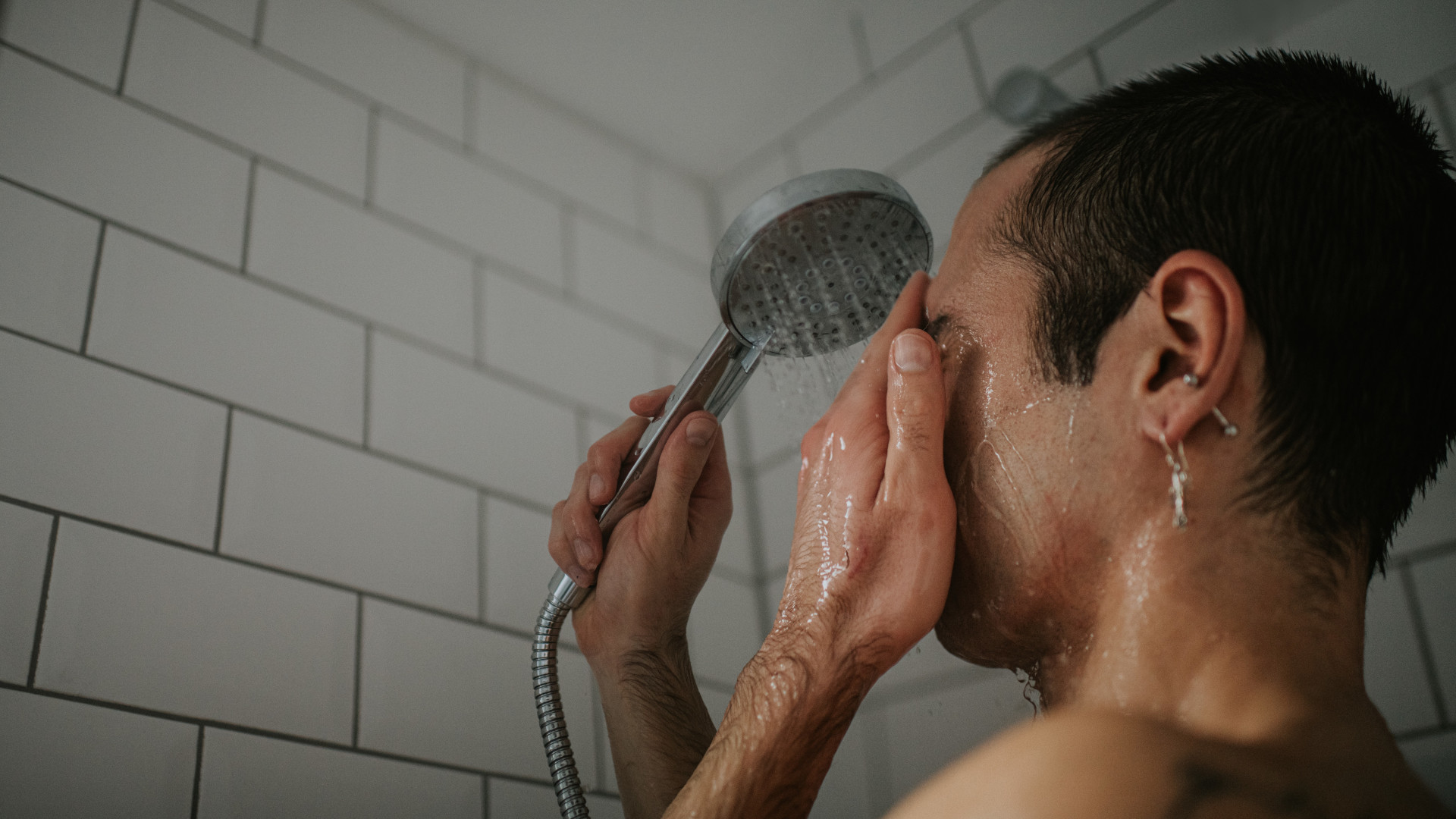
6. Get your Omega 3s
Finally, if your eyes are bothering you, the Mayo Clinic recommends certain foods for promoting eye health including Omega-3-rich foods like salmon, herring, tuna, mackerel, rainbow trout and sardines as well as lots of fruits and vegetables.
Julia Clarke is a staff writer for Advnture.com and the author of the book Restorative Yoga for Beginners. She loves to explore mountains on foot, bike, skis and belay and then recover on the the yoga mat. Julia graduated with a degree in journalism in 2004 and spent eight years working as a radio presenter in Kansas City, Vermont, Boston and New York City before discovering the joys of the Rocky Mountains. She then detoured west to Colorado and enjoyed 11 years teaching yoga in Vail before returning to her hometown of Glasgow, Scotland in 2020 to focus on family and writing.

